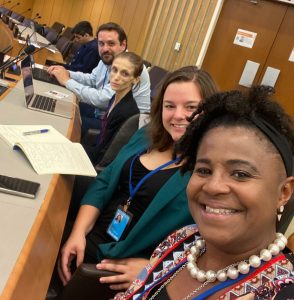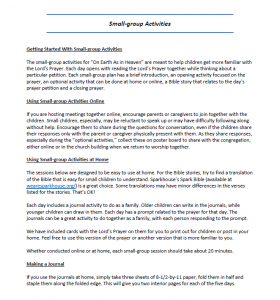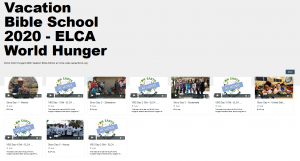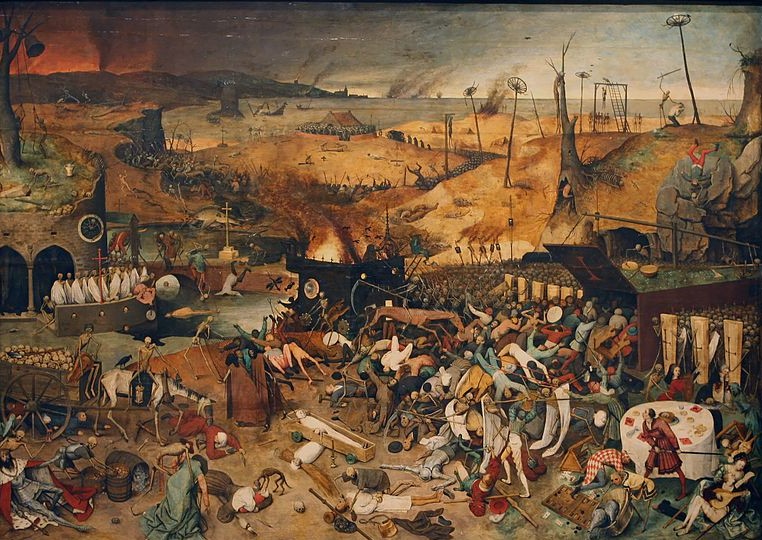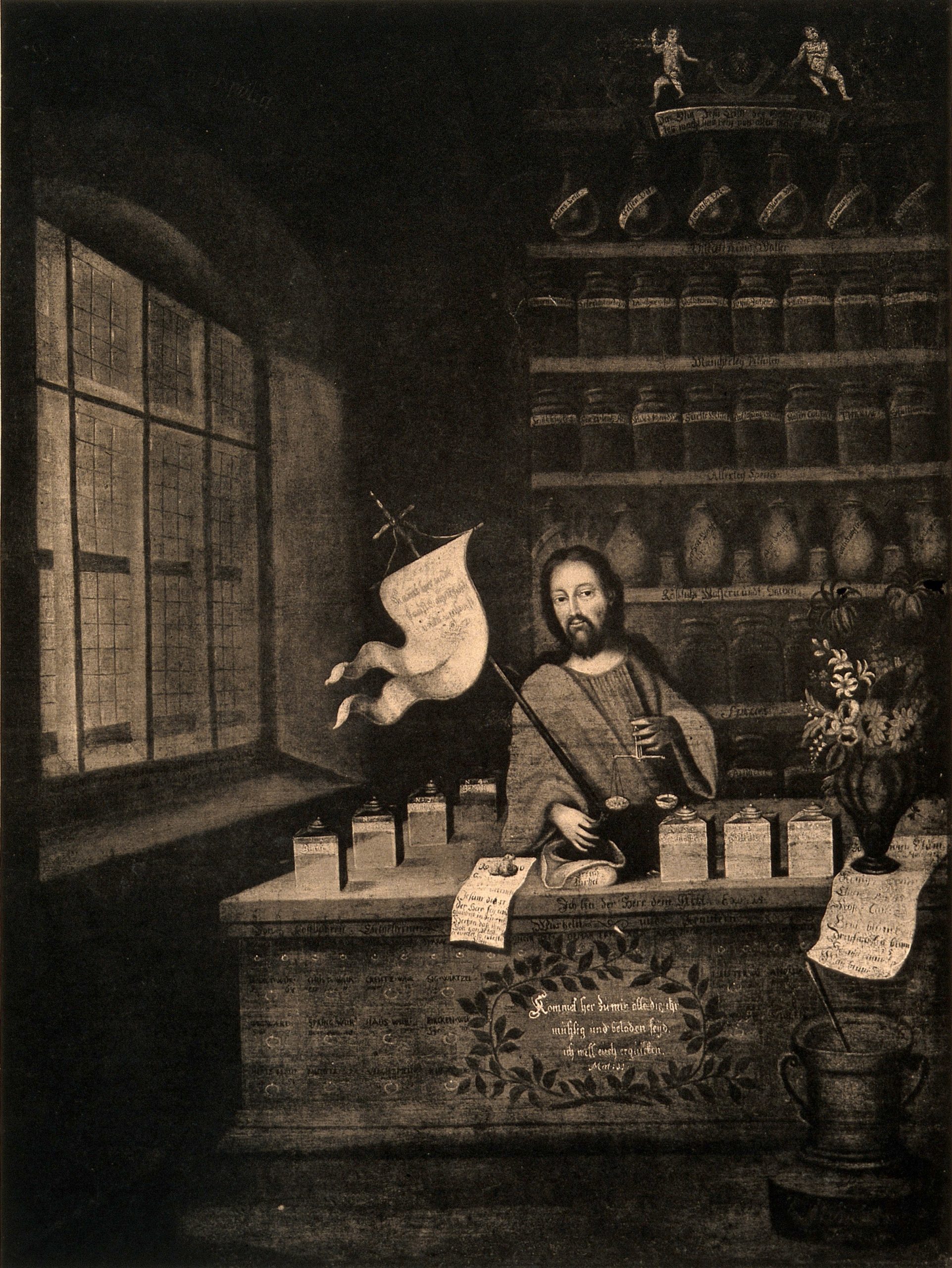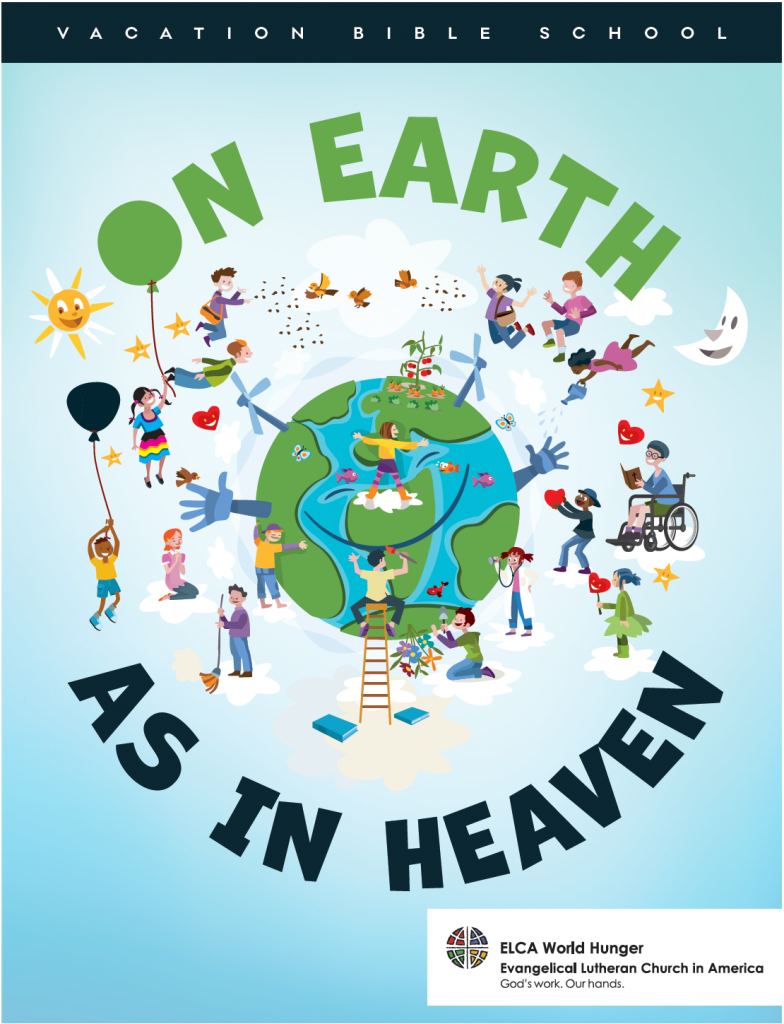In July 2023, four leaders from across the United States joined ELCA World Hunger and the Lutheran Office for World Community in New York City as delegates of the Lutheran World Federation at the 2023 United Nations High-Level Political Forum. The forum was an opportunity for UN member states, agencies and organizations to share updates on progress toward the Sustainable Development Goals. As our delegation learned, progress against the goals has been slow and, in some cases, has reversed. The delegation, representing the 149 member churches of the Lutheran World Federation, including the ELCA, was able to hear from leaders around the world, meet other advocates, connect with staff from the ELCA’s advocacy office in Washington, DC, listen to stories of changes and challenges, and consider together how each of us can be part of the work toward the Sustainable Development Goals in our communities.
Below is a reflection from Willie F. Korboi. Willie is Regional Representative of the African Descent Lutheran Association (ADLA), Media and Publicity Chairperson of the Association of Liberian Lutherans in the Americas (ALLIA), and Digital Evangelical Minister at Peoples’ Community Evangelical Lutheran Church, Baltimore. You can read other reflections from participants in this event here and here.
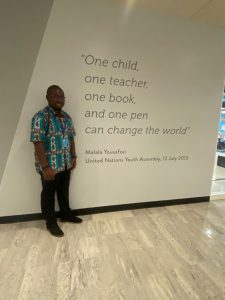
The author by quote in UN building: “One child, one teacher, one book, and one pen can change the world.”
Representing the Lutheran World Federation and the ELCA World Hunger program at the 2023 UN High-Level Political Forum (UN HLPF) was a remarkable experience. The UN HLPF allowed me to witness the extensive efforts undertaken by governments, civil society organizations, faith-based organizations, non-governmental organizations (NGOs), and the private sector towards achieving the Sustainable Development Goals (SDGs). It was interesting to note the repeated emphasis on “collective action” among the conversations and the recognition of the importance of collective action in realizing the SDGs.
This annual global event also afforded me the opportunity for networking, learning and knowledge-sharing, exposure to new ideas, awareness of global challenges, and a sense of my own contribution.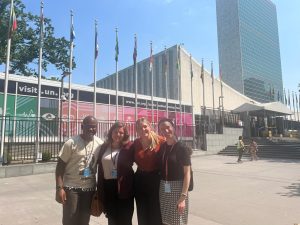
Like my colleagues, I engaged in activities of key interest, including thematic discussions, presentations, and side events with inter-faith organizations. My engagements on the SDGs mainly focused on conversations regarding eradicating hunger, poverty reduction, climate action, gender equality, access to education and healthcare, and the protection of children.
It was intriguing to learn at the side events session highlighting the role of the private sector as a driving force behind achieving the SDGs. Collaborative efforts involving governments, civil society and the private sector are crucial in realizing sustainable development. The emphasis on working together aligns with the initial vision set forth when the SDGs were launched.
During our time in New York, our group was able to attend a meeting of faith-based groups to learn and talk about the protection of children. The conversation on the protection of children within the context of faith-based initiatives was thought-provoking. The discussion centered around children’s well-being and safety as essential components of sustainable development and how involving faith-based organizations in these discussions can bring unique perspectives and solutions.
A call for action by Rabbi John from Baha’i International during the faith-based gathering highlighted the importance of moving beyond slogans and taking concrete steps to address the challenges facing children. While slogans may raise awareness, practical actions are necessary to make a meaningful impact. This underscores the need for tangible solutions and initiatives that directly address the well-being and protection of children.
I was encouraged that the call for action resonated with everyone at the table during the faith-based gathering. Emphasizing the importance of reporting suspected threats of violence against children is critical in ensuring their safety and well-being. Reporting such incidents can help initiate appropriate interventions and support systems to protect children from harm. This reinforces the notion that individuals have a collective responsibility to act when they witness or become aware of potential dangers to children.
It was also important to note that the discussion highlighted various channels through which individuals can effectively report suspected threats against children. Reporting to child rights advocacy groups, civil society organizations, government authorities through security apparatus and faith-based advocacy groups were all valuable avenues to raise awareness and ensure appropriate action is taken. The essence of these channels could not be over-emphasized, as they play a crucial role in addressing and mitigating risks to children’s well-being. Participants were encouraged to utilize these channels and promote a culture of reporting to protect children from violence and harm.
I would like to express my heartfelt gratitude to ELCA World Hunger, the Lutheran World Federation (LWF) and the Lutheran Office for World Community for generously sponsoring my participation at the event. The experience and knowledge gained during this event have been invaluable, providing me with a deeper understanding of global challenges and the SDGs.
With continued support, I hope to create a positive impact, ensuring that the principles discussed at the HLPF translate into tangible improvements for individuals and societies. Once again, thank you, ELCA World Hunger, for investing in my development, and I look forward to making a meaningful difference in the field of education and sustainable development.
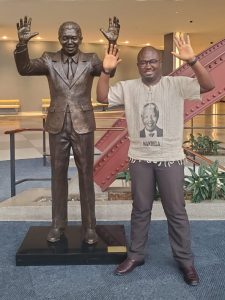
Willie with statue of Nelson Mandela inside the UN building


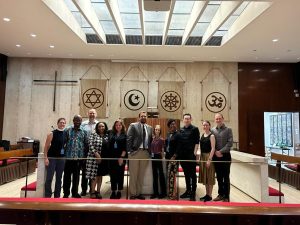 This week, four leaders from across the United States joined ELCA World Hunger and the
This week, four leaders from across the United States joined ELCA World Hunger and the 